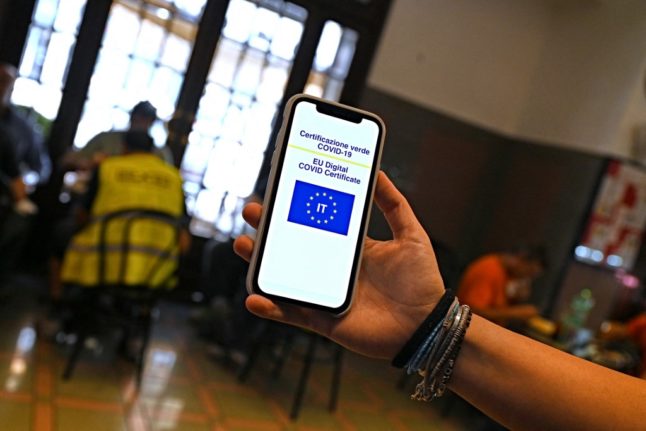The certificate is now compulsory to access almost all indoor areas, including restaurants, bars, fitness centres, sports events, cultural facilities, as well as some gatherings such as weddings in private venues.
More specifically, “access to cultural and leisure facilities such as museums, libraries, zoos, fitness centres, climbing halls, swimming pools, water parks, spas, billiard halls and casinos is also limited to Covid certificate holders” the Federal Council said.
READ ALSO: How Switzerland’s newly extended Covid-19 certificate works
The government specified, however, that “to protect fundamental rights, religious ceremonies and political events for up to 50 people are exempt, as are self-help groups”.
READ MORE: TODAY: Switzerland extends Covid certificate for entry to restaurants and bars
Is a certificate needed for essential activities like shopping?
No. The same rules as before apply to shopping — that is, masks must be worn and retailers can limit the number of people allowed to enter at the same time, depending on the size of the store.
However, this applies only when you shop in Switzerland; if you are returning from shopping in France, Italy, Germany, or Austria, you must present your Covid certificate at the border.
READ MORE: How Switzerland’s new Covid certificate rule could impact cross-border shopping
Can I go to the hairdresser without the certificate?
Yes, you can. Hairdressers, as well as other personal service providers such as massage therapists and nail salons don’t require Covid certificates.
However, they have specific hygiene protection measures such as frequent disinfection of all surfaces and instruments, along with the compulsory mask wearing on premises.
What about public transport?
Only masks are required on trains, buses, and trams. A Covid certificate is not compulsory, at least at the moment, though Graubünden is calling for the introduction of a certificate requirement for public transport and retail stores.
Under the canton’s plan, only those who have been vaccinated, tested negative or who have recently recovered from the virus, and have a valid Covid certificate, would be able to use public transport or go shopping.
However, no other canton, or the federal government, has said anything about implementing this particular requirement.
Will I be able to go skiing without the certificate?
We don’t know yet.
Lukas Engelberger, president of the Conference of Cantonal Health Directors wants to make the certificate compulsory to access the ski slopes. He argues that “being able to ski without a mask will be nice and the ski lifts could thus increase their capacity”.
However, at least one mountainous canton, Valais, is against this suggestion.
“We want to be on an equal footing with public transport where wearing a mask, but not the Covid pass, is compulsory”, said Didier Défago, president of the Valais ski lifts.
Can the certificate be extended to students and teachers at public universities?
“The cantons or universities may introduce a certificate requirement for teaching at Bachelor and Master level”, according to the Federal Council.
“In such cases, students would not be required to wear a mask and there would be no restriction on classroom capacity”.
In fact, some universities have already implemented this rule, including the Federal Polytechnic Institute (EPFL), University of Geneva, University of Lausanne, and University of Neuchâtel.
Here are some answers relating to the use of Covid certificate at work and when arriving to Switzerland from abroad:
Can your boss require you to have a Covid certificate in Switzerland?
Travel: Switzerland to tighten entry rules from September 20th



 Please whitelist us to continue reading.
Please whitelist us to continue reading.
My husband’s mother and auntie are visiting us for two weeks. They are British, both 87 yrs old, both have NHS covid certificates digital and PDF form, never tested positive for covid… yet their NHS certificates were not honored on local coffee shop in Signy. We tried to get some help from British consulate and related covid-Swiss websites, including local doctors to explain why but no answer…